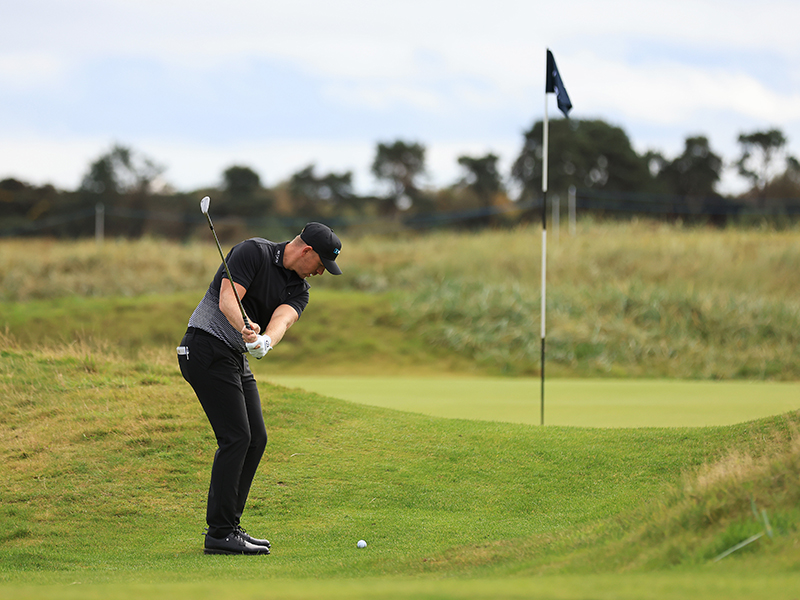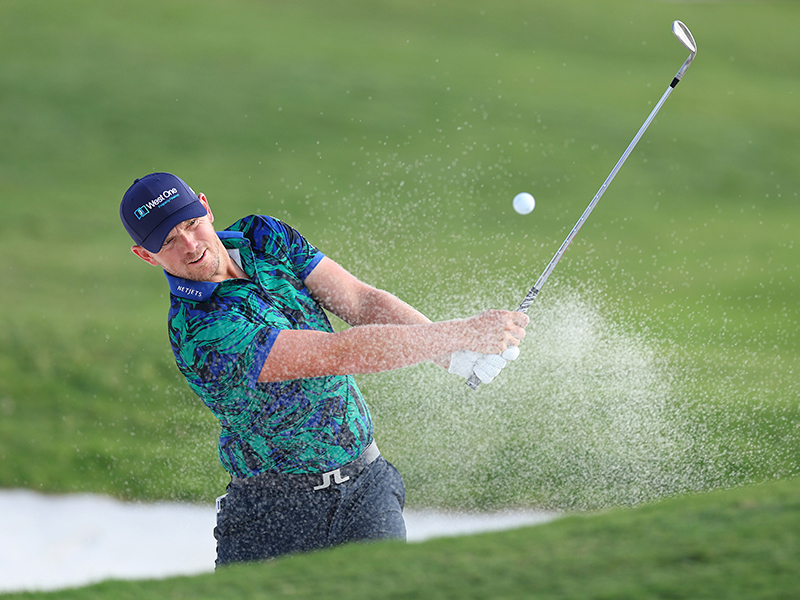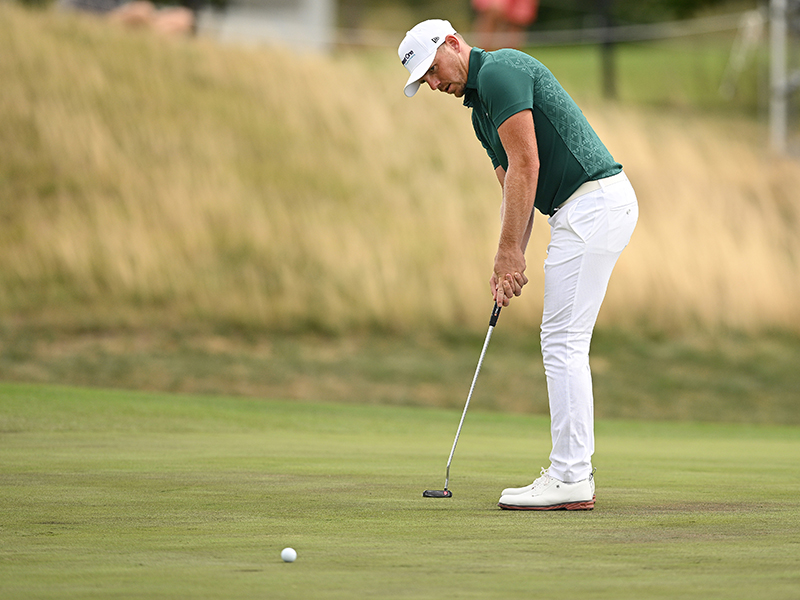
For many amateur golfers, the difference between a great round and a poor round is often their short-game performance. Listening to the best golf tips and practicing regularly is a great way to improve in this area, but what exactly should you be focusing on?
Whether you want to improve your putting, learn how to spin the golf ball or master the 50-yard pitch shot, we have just the person to help you out. We trawled through our archives to unearth a short-game masterclass, from 10-time tour winner Matt Wallace, in a bid to help you perfect your practice on and around the greens...
1. Pitching Distances
I’ve got a chart with four different positions. With my lob wedge, I’ve got a clubhead to shoulder position, which is 40 yards; where the tag sits on the shaft to my shoulder, which is 60; hands to shoulder, which is 80; and then my full swing, which is 90.
2. Wedge Spin
I've worked really hard with Graham Walker on launch control. If the ball goes too high or too low, it doesn’t have the right spin characteristics. Whatever degree the club is, say 60˚, you want the launch to be coming out at half that loft.
3. Increasing Power
Just work on hitting it out the middle – and that comes through practice – as that’s when you get the best ball speed. The ball hardly moves left to right any more if you hit it properly.

4. Bunker Play
I have the following fundamentals: neutral stance, the ball on my left heel, my toe pointing at 45˚, the clubhead a ball’s width back, the shaft pointing vertical and no lean either way, my sternum on the ball-to-heel line and my feet shoulder-width apart.
Then the grooves will point towards my left toe – not overly open – to help expose the bounce. My weight is also 70-30 on the left side and I don’t move away from that.
5. Chipping
I work on trying to feel like I’m hitting slight draws – this helps to shallow out the club and ensure the clubhead is going more down the target line. If you hit your chips slightly out of the toe, this is a good drill and I generate decent spin with it.
6. Practice
You have to be engaged and not just do it for a certain amount of time or hit balls just for the sake of it. When I work with my swing coach, Liam James, whether it’s an hour or three hours, we have to get it right and that’s really important for my confidence.

7. Holing Out
I’m always hitting it over a spot a foot and a half in front of me, rather than looking at the hole. We have a lot of big, breaking putts and it’s easier to look at a spot when you’re aiming outside the hole.
8. Green Reading
I will look at a putt from when I get on to the green, assessing the high and low side. I’ll look from the low side to check break and speed. From behind, I will get my start line and the spot I want to hit it over. I’ll trace my eyes up and down that line, seeing it going into the hole at a certain speed.
9. Under-Reading Putts
I once asked a pro-am partner how much break he thought there would be on a 25-foot putt and he said left edge. From 20-25 feet you will very rarely have a left edge putt. People’s under-reading of putts is mind-blowing.

10. Rhythm
Robert Rock was the first to really help me with my backswing. We did a lot of slow-motion swings to hit the new positions and that kind of moved into my full swing. I used to take it back a lot slower than I do now, but back then I didn’t quite have the grasp of the positions so I had to swing it slower. Now I’ve got a bit more flow.
Want To Read More Expert Golf Tips From Our Archives?
The Golf Monthly archive is a gold mine of brilliant reads, documenting a journey through the history of golf dating back to our first issue in 1911. Take advantage of over 100 years of invaluable tips from the best tour professionals and coaches in world golf, by subscribing to the online Golf Monthly Archive.







